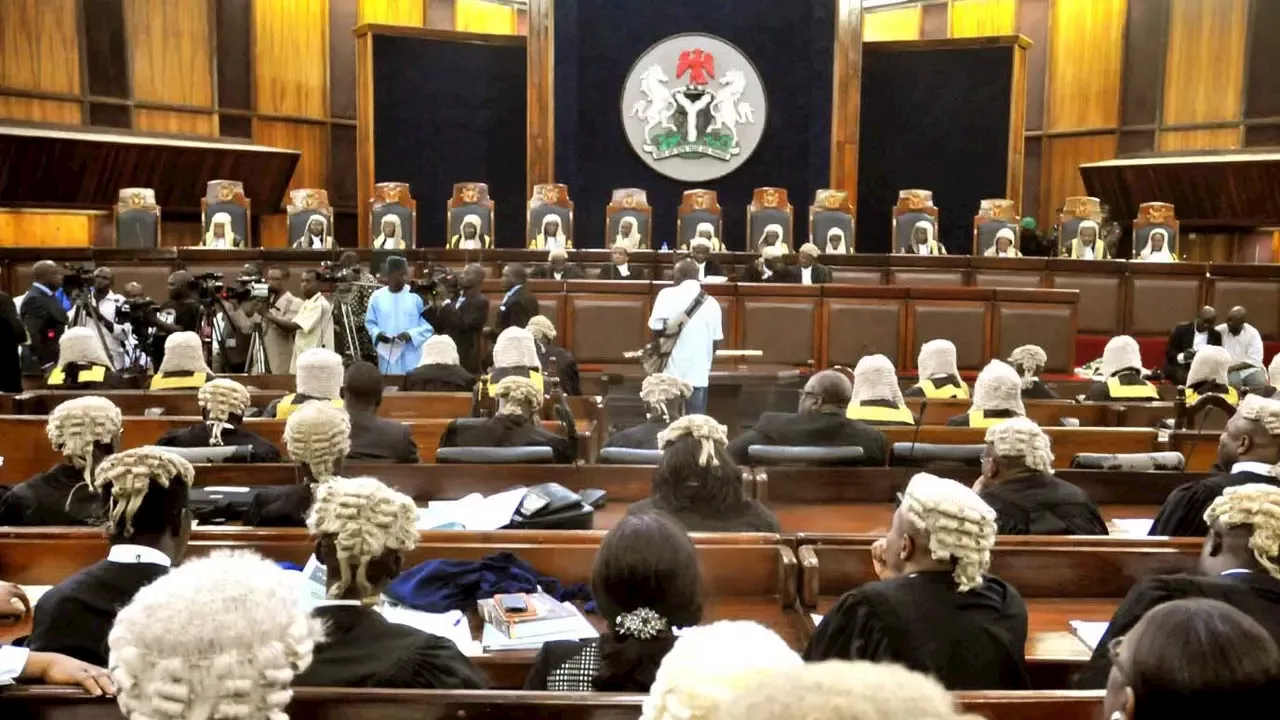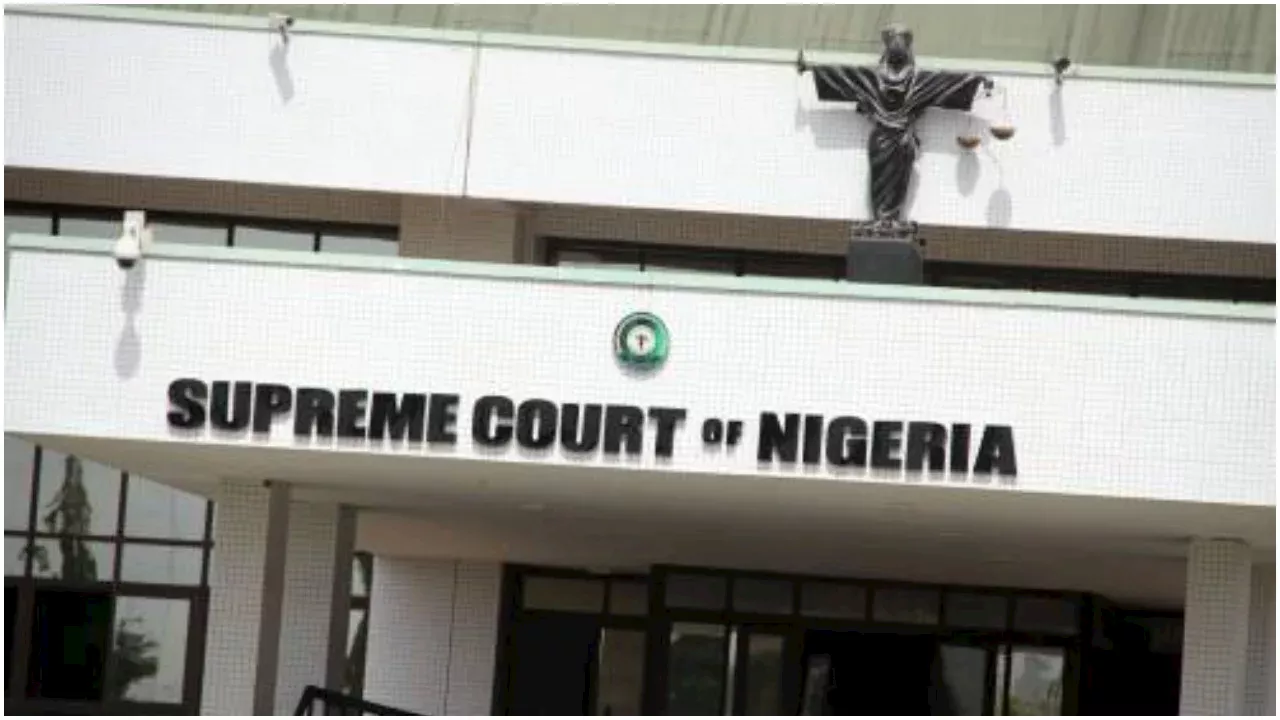The central issue in the case was determining whether the gaming and lottery sector falls under the Exclusive Legislative List, the Concurrent Legislative List, or the Residual Legislative List of the Nigerian constitution.
Nigerian lawmakers violate country’s law, ignore PWD’s needs despite spending N42 billion on renovationsSPECIAL REPORT: How disinformation fueled ethnic tensions in KadunaAhmadu Kurfi: Exit of a great statesman, By Jibrin IbrahimBlood on UniformsINVESTIGATION: Dasuki Money Trail: How ex-NSA approved suspicious billions for family friends
Therefore, the court ordered that the National Lottery Act 2005 should no longer apply in any state of the federation, Channels Television Laying the 15-year-old legal dispute to rest in its judgement on Friday, the Supreme Court held that only the state Houses of Assembly have exclusive jurisdiction over lottery and related issues, thereby placing the issue under the residual list.It resolved the two focal issues raised for determination in the suit against the two respondents and granted all the state governments’ prayers.
In particular, the court declared that sections 17, 18, 19 and 20 and 21 of the National Lottery Act 2005 are inconsistent with the constitution, adding that the National Lottery Act is inconsistent with the provisions of the Nigerian constitution.It also issued an order of perpetual injunction restraining the first defendant and his agents and agencies of the federal government from implementing the provisions of the National Lottery Act within the territories of the plaintiff’s states.
The Attorney General of Lagos State commenced the suit at the Supreme Court in 2008, following disputes with the federal government over the control and regulation of the gaming and lottery sector. They also sought a declaration that the National Assembly lacked the power to legally and constitutionally make any law to regulate and control the operation of lottery in Nigeria.Prior to Friday’s final decision of the Supreme Court, the disputes over the regulation of the gaming and lottery sector had thrown up two separate suits leading to conflicting decisions.
The suit sought by virtue of sections 4, and 299 of the Nigerian constitution, the power of the National Assembly to make laws to regulate and control the operation of lottery is limited by the 1999 Constitution to only the Federal Capital Territory.
Nigeria Latest News, Nigeria Headlines
Similar News:You can also read news stories similar to this one that we have collected from other news sources.
 BREAKING: Supreme Court dismisses state governments’ suit against EFCC, ICPC, NFIU, rebukes Kogi, othersIn a stinging rebuke, the Supreme Court described the state governments that filed the case as selfish.
BREAKING: Supreme Court dismisses state governments’ suit against EFCC, ICPC, NFIU, rebukes Kogi, othersIn a stinging rebuke, the Supreme Court described the state governments that filed the case as selfish.
Read more »
 UPDATED: Supreme Court dismisses state govts’ suit against EFCC, others, rebukes Kogi, othersIn a stinging rebuke, the Supreme Court described the state governments that filed the case as selfish.
UPDATED: Supreme Court dismisses state govts’ suit against EFCC, others, rebukes Kogi, othersIn a stinging rebuke, the Supreme Court described the state governments that filed the case as selfish.
Read more »
 Reps contradict Supreme Court, ask CBN to phase out old naira notes by DecemberThe lawmakers asked the CBN to issue more new ₦200, ₦500, and ₦1,000 notes and begin the gradual withdrawal of the old notes from circulation before the deadline of 31 December.
Reps contradict Supreme Court, ask CBN to phase out old naira notes by DecemberThe lawmakers asked the CBN to issue more new ₦200, ₦500, and ₦1,000 notes and begin the gradual withdrawal of the old notes from circulation before the deadline of 31 December.
Read more »
 Benue withdraws from suit against EFCC ahead of Supreme Court judgementThe Supreme Court had reserved judgement on the suit on Tuesday, with three other states—Anambra, Adamawa, and Ebonyi—also announcing their withdrawals from the case during the proceedings.
Benue withdraws from suit against EFCC ahead of Supreme Court judgementThe Supreme Court had reserved judgement on the suit on Tuesday, with three other states—Anambra, Adamawa, and Ebonyi—also announcing their withdrawals from the case during the proceedings.
Read more »
 LG autonomy: Coalition raises alarm over Soludo’s resistance to Supreme Court rulingsA Coalition of Civil Society Organizations (CSOs) under the auspices of Save Nigerian Democracy Group (SNDG) has raised alarm over what they described as the insidious actions of Governor Chukwuma Soludo of Anambra State as regards Supreme Court judgments.
LG autonomy: Coalition raises alarm over Soludo’s resistance to Supreme Court rulingsA Coalition of Civil Society Organizations (CSOs) under the auspices of Save Nigerian Democracy Group (SNDG) has raised alarm over what they described as the insidious actions of Governor Chukwuma Soludo of Anambra State as regards Supreme Court judgments.
Read more »
 Govs vs EFCC: Supreme Court judgement will define Nigeria’s federalismThe Judiciary Watchdogs, a coalition of lawyers from the 36 states of Nigeria, has stated that the lawsuit filed by 19 state governors challenging the constitutionality of the Economic and Financial Crimes Commission, EFCC, will define Nigeria's federalism.
Govs vs EFCC: Supreme Court judgement will define Nigeria’s federalismThe Judiciary Watchdogs, a coalition of lawyers from the 36 states of Nigeria, has stated that the lawsuit filed by 19 state governors challenging the constitutionality of the Economic and Financial Crimes Commission, EFCC, will define Nigeria's federalism.
Read more »
